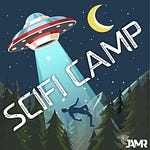The Psychics trope explores the idea that certain individuals possess extraordinary mental abilities—telepathy, telekinesis, precognition, and more. These abilities often emerge as the result of evolution, experimentation, or alien influence, and they serve as a lens through which science fiction examines power, identity, and the limits of human potential.
While psychic phenomena have roots in mythology and the occult, science fiction reimagines them through a scientific or pseudo-scientific framework. Often framed as the next step in human evolution or as a side effect of technological advancement, psychic powers become a metaphor for the unknown frontiers of the mind.
Psychics represent both hope and fear. They embody our fascination with unlocking hidden potential, but also our dread of losing control. Whether revered as prophets or hunted as threats, psychic characters reflect deep anxieties about individuality, privacy, and what it means to be human in an increasingly interconnected world.
Recommendations
Isaac Asimov’s Foundation series features the Mule, a powerful mutant with mind-control abilities that threaten the stability of the galaxy.
Akira (1988) presents telekinetic children as products of government experimentation gone wrong, with apocalyptic consequences.
Stephen King’s The Dead Zone and Firestarter blend psychic powers with Cold War paranoia and government conspiracy.
Babylon 5 includes the Psi Corps, a powerful organization of telepaths that blurs the line between protector and oppressor.









Share this post